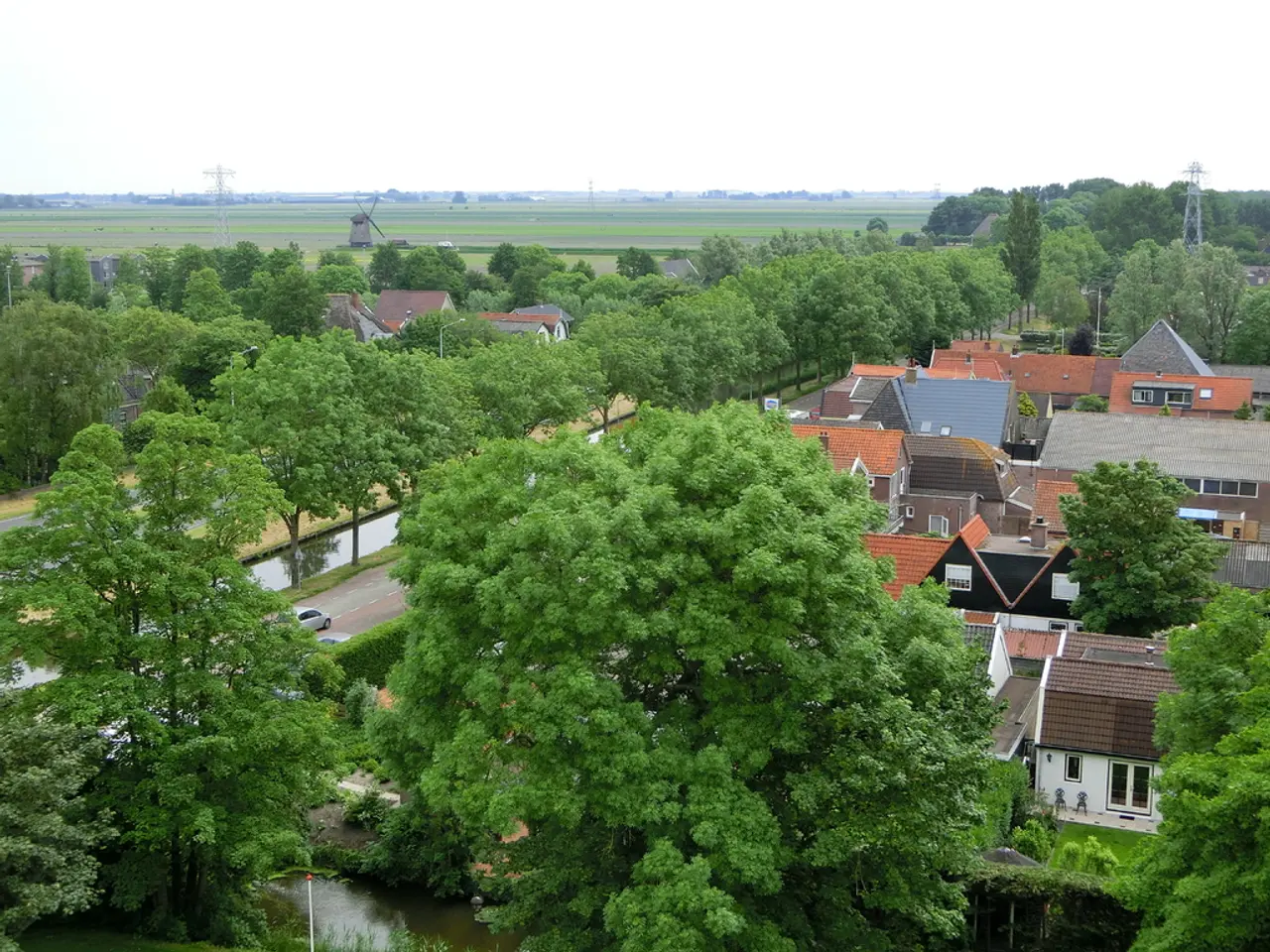Masdar Increases Renewable Energy Presence in Central Asia through the Development of a Wind Power Plant in Kazakhstan
Masdar's 1 GW Wind Farm Project in Kazakhstan: A Step Forward in Central Asia's Renewable Energy
Masdar, a leading global renewable energy company, is actively developing a one-gigawatt (1 GW) wind farm project in Kazakhstan, marking its expansion in Central Asia. The company has signed a power purchase agreement (PPA) for the wind farm, confirming its commitment to the region[3].
The project aligns with Masdar's strategy to expand its renewable assets in Central Asia, following successful projects in Uzbekistan and Azerbaijan. Masdar aims to achieve 100 GW of capacity by 2030 globally, with active projects in Kazakhstan, Uzbekistan, and Azerbaijan[3][5].
In the Zhambyl Region of Kazakhstan, wind masts have been installed to measure wind speed, direction, and seasonality. Twelve months of data collection is required for the wind farm project to ensure bankability[4]. While a specific commercial operation date (COD) or early generation date has not been provided, the project is part of Masdar's 2020s development push[3][5].
Kazakhstan boasts substantial potential for both wind and solar energy, and future solar projects are not ruled out[6]. The country's extreme temperatures make it an excellent candidate for diverse renewable energy technologies[6].
Masdar has a proven track record in renewable energy projects, having deployed nearly $8 billion in equity and secured over $4.5 billion in project financing across nine countries in 2024[2]. The company played a pivotal role in the Hywind Project, the world's first commercial offshore floating wind farm, designed for deep-sea deployment[1].
Masdar's strategic expansion has been marked by landmark deals in Spain, Greece, and the United States. The company has introduced AI, digital solutions, and robotics to enhance operations and maintenance, ensuring sustainable and efficient energy production[7]. Masdar has also developed projects in over 40 countries across six continents, with a current portfolio capacity exceeding 31 gigawatts[8].
Central Asian nations, such as Uzbekistan, have been adaptable in embracing renewable energy. Uzbekistan has implemented numerous renewable projects in five years[9]. Masdar sees great potential in emerging markets like Indonesia and Uzbekistan, where it was among the first investors in renewable energy[9].
The Zhambyl wind farm project prioritizes wind energy over solar at the government's request, but Masdar remains technology-agnostic[10]. The company's goal is to reach 100 gigawatts by 2030, a target aligned with the COP28 commitment to triple renewable energy capacity globally by that year[11].
As Masdar continues to develop the 1 GW wind farm in Kazakhstan, it is poised to contribute significantly to Central Asia's renewable energy landscape, furthering its commitment to a sustainable and low-carbon future.
Sources: 1. Hywind Scotland: World's First Commercial Floating Wind Farm 2. Masdar Deploys Nearly $8 Billion in Equity and Secures Over $4.5 Billion in Project Financing Across Nine Countries in 2024 3. Masdar Signs Power Purchase Agreement for One-Gigawatt Wind Farm Project in Kazakhstan 4. Zhambyl Wind Farm Project: Twelve Months of Data Collection Required for Bankability 5. Masdar Targets Rapid Growth and Deployment of Renewables, Aiming for 100 GW of Capacity by 2030 Globally 6. Kazakhstan: Substantial Potential for Both Wind and Solar Energy 7. Masdar Introduces AI, Digital Solutions, and Robotics to Enhance Operations and Maintenance 8. Masdar's Portfolio Capacity Exceeds 31 Gigawatts Across 40 Countries 9. Masdar: A Pioneer in Renewable Energy Investments in Emerging Markets 10. Zhambyl Wind Farm Project: Masdar Remains Technology-Agnostic 11. Masdar's Goal: Reach 100 Gigawatts by 2030, Aligned with COP28 Commitment
Read also:
- More than half of British homes adhere to insulation standards established during the 1970s.
- Transition in Energy: Merz Administration Plans Enactment of Heating Revolution from 2026
- Updates on the Solar 1000 Megawatt and Solar 2000 Megawatt Projects in Algeria
- The shift towards clean energy is inevitable, but what are the obstacles hindering its progress?








